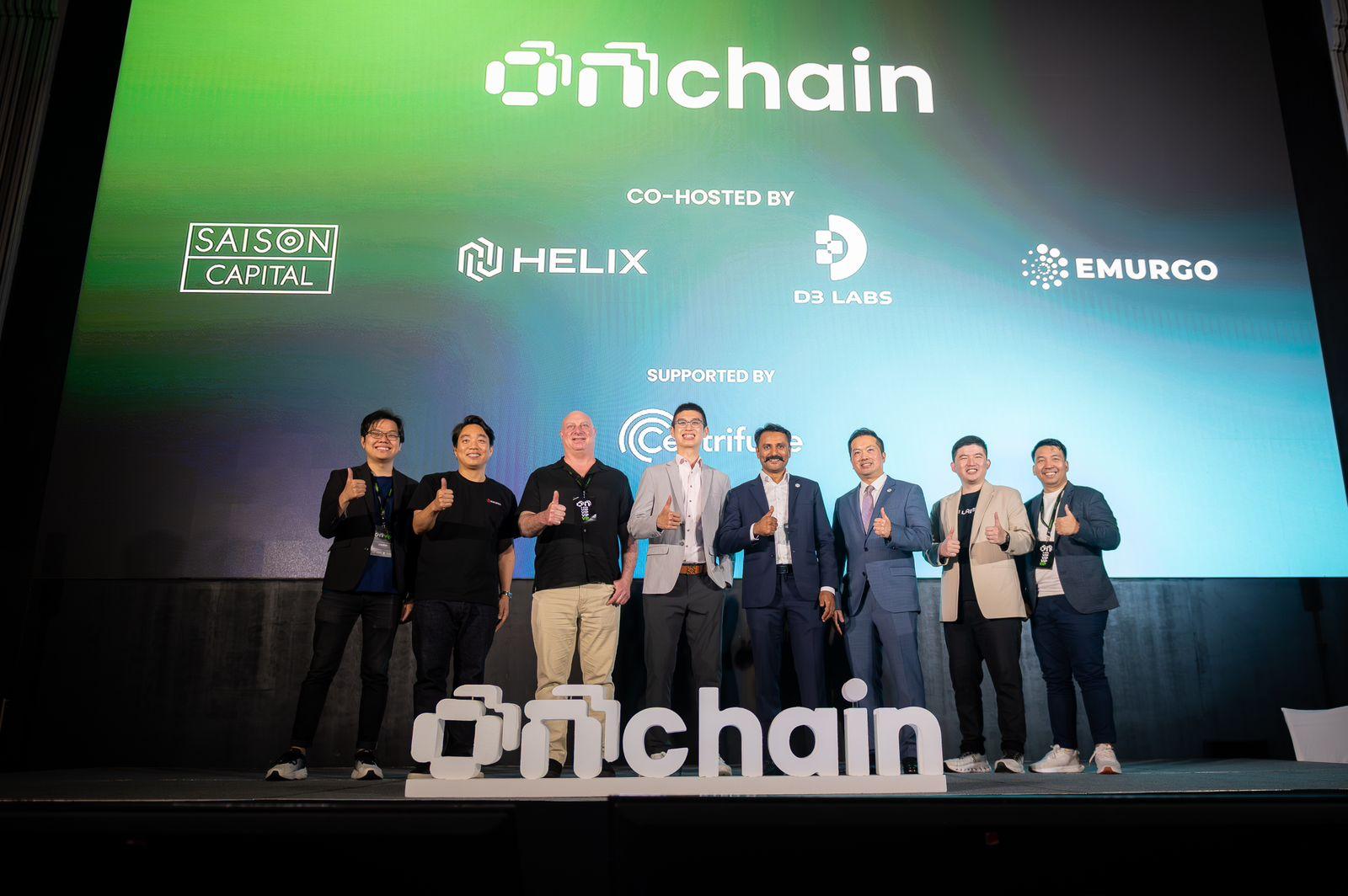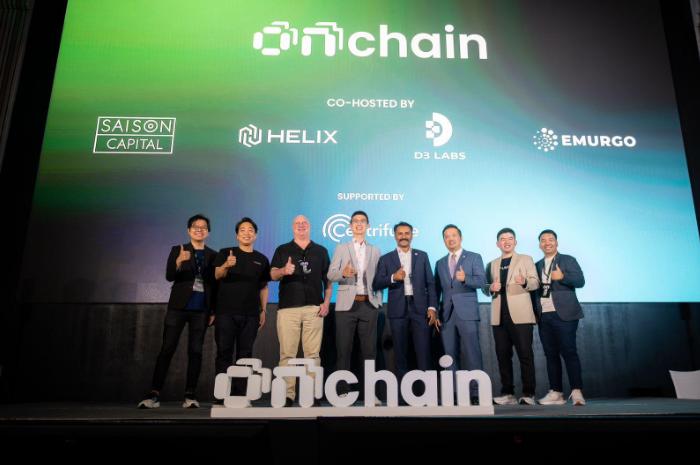
ONCHAIN 2025 Charts Southeast Asia’s Path Toward Real-World Asset Tokenization
Bangkok, Thailand, May 5th, 2025, Chainwire
As global interest in real-world asset (RWA) tokenization surges, Southeast Asia is swiftly emerging as a strategic hub. At ONCHAIN 2025, Asia’s first dedicated RWA conference, over 500 leaders from infrastructure providers, regulators, and financial institutions across the region gathered to discuss the regulatory, technical, and market forces shaping the tokenization landscape. The event highlighted an area full of ambition, united in vision yet diverse in execution.

“This year’s ONCHAIN is about HOW,” said Qin En Looi, Partner at Saison Capital, during the opening ceremony. “How we move from pilot to production, how we scale beyond proof of concept, and how we make asset tokenization work not just in theory, but in reality.” From Thailand and Indonesia to the Philippines, country representatives shared their progress and perspectives on how Southeast Asia can become a global player in this emerging sector.
ONCHAIN: Current Landscape of Tokenization in Southeast Asia
In recent years, Southeast Asian regulators have increasingly focused on tokenizing real-world assets (RWA) to modernize financial markets and foster innovation. Initiatives vary by country but generally include establishing regulatory frameworks to facilitate digitalizing tangible assets such as real estate, commodities, and financial instruments.
Countries like Singapore have been at the forefront of this movement in the region. In 2022, they launched their regulatory sandbox program, Project Guardian, to test RWA tokenization applications. Global financial institutions such as UBS and Standard Chartered are among the notable participants. While other Southeast Asian countries are still relatively early in their tokenization initiatives, guidelines are already being developed to ensure compliance and protect investors.
Several countries have launched their sandbox programs, onboarding participation from financial institutions over the past year. This regional movement aims to enhance liquidity, reduce transaction costs, and make asset ownership more accessible by leveraging tokenization technology.
Philippines: From MVP to Minimum Viable Ecosystem
The Philippines is emerging as a leading case study for scalable RWA tokenization in Southeast Asia. In his keynote, Nichel Gaba, CEO of PDAX, emphasized that the future of tokenized assets relies not only on product launches but also on building a minimum viable ecosystem that includes exchanges, custodians, regulatory frameworks, and financial literacy. This holistic infrastructure is essential for long-term success and real-world adoption.
Qin En, during his opening speech, also highlighted that in the Philippines, when the government first launched the tokenized treasury bond, more than 85% of it was subscribed by retail individuals. These tokenized government bonds are accessible to retail investors through digital wallets, reflecting blockchain’s potential to drive financial inclusion.
The Philippines also benefits from high crypto awareness, sparked by the early adoption of platforms like Axie Infinity, moving on to institutional adoption by Union Bank, one of the most active financial institutions spearheading stablecoin and tokenization in the country. With growing collaboration between regulators and innovators, the nation is positioning itself for mass-market tokenized products supported by demand and infrastructure.
Thailand: Real Progress with Investment Tokens
Thailand, the host nation of ONCHAIN 2025, is demonstrating one of the region’s most coordinated national efforts toward asset tokenization. The nation’s leading financial institutions, Kasikorn Bank (K Bank) and Siam Commercial Bank (SCB), are actively driving the tokenization initiative in collaboration with the Thai SEC. Jittinun Chatsiharach, CEO of Token X, a subsidiary of SCB for tokenization, delivered a powerful message on stage about blockchain’s evolving role in finance, urging the industry to look beyond the hype and focus on real impact. While blockchain has been widely discussed, its true potential remains underutilized, particularly in enhancing transparency, operational efficiency, and communication.
She emphasized that meaningful progress requires deep collaboration across governments, financial institutions, and technology builders. Most importantly, she reminded the audience that innovation doesn’t happen in isolation; it takes a unified community of developers, students, investors, and leaders to shape the future. “Now is the time to build, connect, and lead,” she concluded, calling on the region to embrace its opportunity to drive blockchain adoption with purpose and inclusivity.
Indonesia: A Launchpad for Compliant Tokenization
On the other hand, as Southeast Asia’s largest economy, Indonesia has yet to see any major financial institutions involved in its tokenization initiatives, unlike its neighboring countries. Despite this, Tigran Adiwirya, Co-CEO of D3 Labs, highlighted OJK’s (Indonesia’s Financial Services Authority) commitment to responsible innovation and has been quietly laying the groundwork to become a trusted regulatory home for tokenization, aiming to transform Indonesia into a global hub for tokenization.
While its pace may seem measured compared to its neighbors, real momentum is building toward developing a friendly tokenization regulatory framework. With the launch of the OJK Innovation Centre for Digital Financial Technology (INFINITY 2.0), fostering greater collaboration among stakeholders, and an expanded regulatory sandbox, Indonesia is creating an environment for the tokenization industry to grow under OJK’s supervision.
Qin En added that Indonesia is shifting from “promise to progress” and may be an unexpected yet powerful launchpad for Web3 infrastructure. D3 Labs is collaborating with OJK to build a platform connecting real-world assets (RWAs) to DeFi protocols while aligning with local compliance. OJK’s pentahelix model encourages collaboration among regulators, academia, civil society, media, and industry. With plans to formalize digital asset issuance rules by Q3 2025, Indonesia is positioning itself as a globally relevant sandbox for tokenized finance.
Regional Outlook: Cooperation, Interoperability, and Clarity Needed
As ONCHAIN 2025 made clear, Southeast Asia is aligning around the promise of tokenization. Each country contributes unique strengths—Singapore’s institutional pilots, Indonesia’s regulatory groundwork, Thailand’s product rollout, and the Philippines’ retail participation.
“The question is no longer, ‘Can blockchain transform finance?’” concluded Qin En. “It’s now: ‘How do we take what’s working, and make it scale?’”
With deeper cross-border collaboration, interoperable systems, and regulatory clarity, Southeast Asia is poised to co-lead the global tokenization movement, unlocking new paths for liquidity, financial inclusion, and investment access across the region and beyond.
About ONCHAIN
ONCHAIN is Asia’s first conference dedicated to the Real-World Asset (RWA) industry.
It brings together founders and leaders from traditional finance (TradFi), fintech, and Web3 to share insights, explore collaboration, and shape the future of tokenized finance through curated panel discussions and high-impact networking. This year’s edition is proudly co-hosted by Saison Capital, EMURGO, D3 Labs, and Helix, united in their mission to advance responsible innovation and real-world adoption of blockchain technology across the region.
Reference:
https://www.linkedin.com/showcase/onchainsummit/posts/?feedView=all
https://www.ojk.go.id/id/berita-dan-kegiatan/siaran-pers/Pages/Launching-OJK-Infinity.aspx
